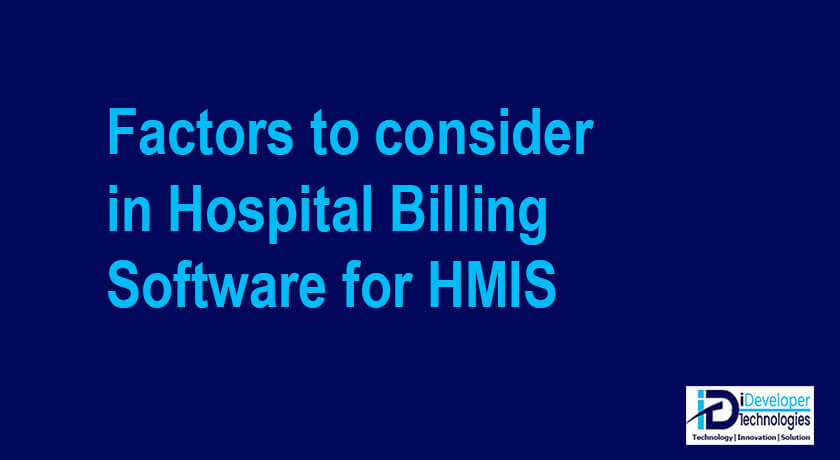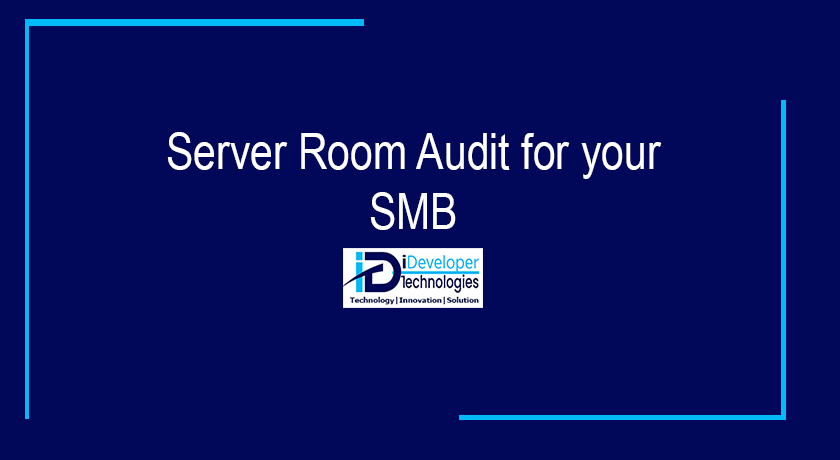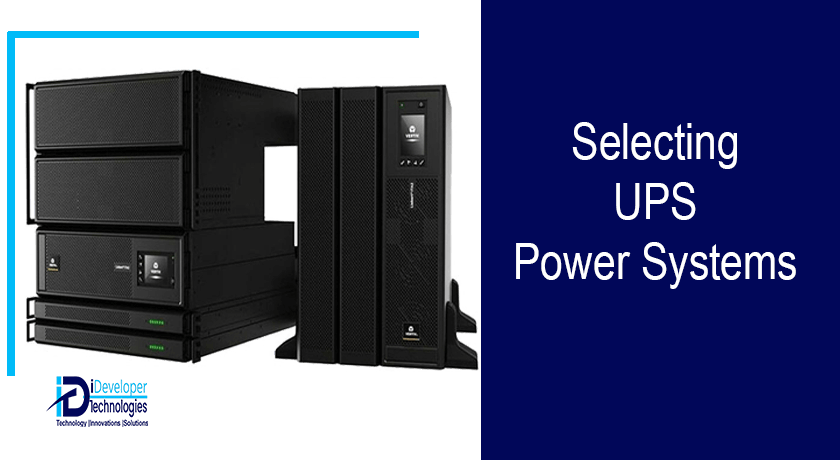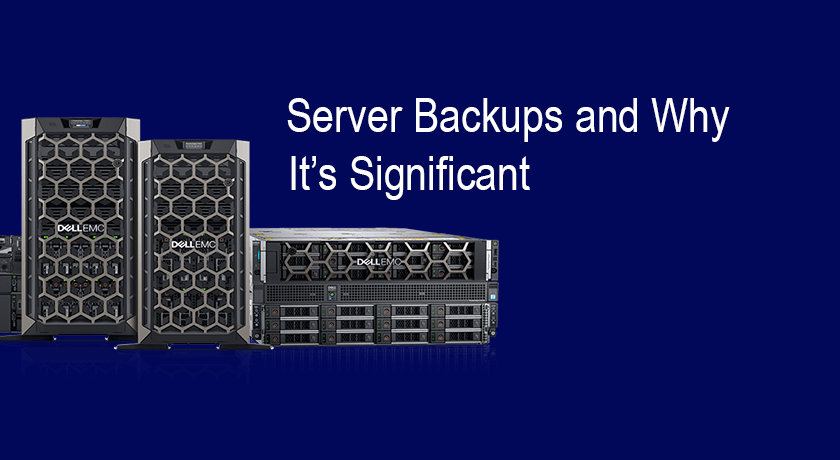A server room is the nerve center of modern business operations in Kenya, as result,…

Factors to consider in Hospital Billing Software for HMIS
Hospital Billing Software plays a pivotal role in modern Healthcare Management Systems (HMS). These sophisticated systems have revolutionized the way healthcare facilities manage their finances, ensuring efficient revenue cycle management and accurate billing processes. In this comprehensive blog, we will delve into the critical aspects of Hospital Billing Software in Kenya within an HMS, providing insights into its features, benefits, challenges, and key considerations.
UNDERSTANDING HOSPITAL BILLING SOFTWARE
Hospital Billing Software is a specialized component of Healthcare Management Systems designed to streamline the billing and revenue cycle processes within healthcare facilities. It automates tasks related to patient billing, insurance claims, and financial data management. The primary purpose is to ensure accurate and timely billing, reduce revenue leakage, and improving financial performance.
INTEGRATION WITHIN HMS
Hospital Billing Software solutions in Kenya are typically integrated seamlessly with other modules of Healthcare Management Systems, such as Electronic Health Records (EHR), Patient Management, and Financial Accounting. This integration ensures a cohesive flow of information and efficient data exchange.
KEY FEATURES AND FUNCTIONALITIES
Integration with Pharmacy Management
- pharmacy billing software handles retail sales of medical supervision to OPD patients and consumers, as well as the distribution of medications to hospital inpatients. The following functions are provided by our pharmacy billing software.
- Medication Billing and Inventory – Integration with pharmacy management allows for seamless billing of medications and real-time inventory management to prevent shortages or excess stock.
- Drug Interaction Alerts – Hospital Billing Software can issue alerts for potential drug interactions, enhancing patient safety.
- Prescription History – Access to patients’ prescription histories aids in making informed medication-related decisions.
- Cost Control and Compliance – This integration helps control medication costs, ensures compliance with formularies, and monitors pharmacy-related expenses.
- Capable of providing a diverse range of available medications to clinicians.
- Capable of sorting out alternate medications for drugs that are not available.
- The software facilitates drug database interaction.
- Our program conveniently displays drug allergy alerts.
- Along with the pneumatic tube, the billing software interfaced for dispatch.
Integration with Laboratory Management
- Billing for Lab Tests – Hospital Billing Software for hostipitals in Kenya, enables billing for laboratory tests and ensures accurate coding for reimbursement.
- Result Integration – Seamless integration with laboratory systems allows for quick retrieval and inclusion of test results in patient records.
- Inventory and Reagent Management – Efficient management of lab inventory, including reagents and supplies, reduces wastage and ensures timely procurement.
- Quality Control – Integration supports quality control measures in the lab, aiding in maintaining accuracy and reliability.
Integration with Inpatient Management
- Bed and Ward Management – Hospital Billing Software assists in managing inpatient occupancy, bed assignments, and ward transfers.
- Procedure Billing – It facilitates billing for inpatient procedures, surgeries, and interventions, ensuring accurate and timely claims.
- Patient Records – Hospital Billing Software integrates seamlessly with inpatient management to maintain comprehensive patient records.
- Nursing and Clinical Documentation – It supports nursing documentation and clinical records, enhancing patient care and billing accuracy.
Claims Processing
- The software automates the generation and submission of insurance claims, reducing errors and denials. It tracks claims throughout the reimbursement process, ensuring timely payments.
Revenue Cycle Management
- Hospital Billing Software manages the entire revenue cycle, from patient registration to final payment collection. It optimizes financial workflows and monitors key performance indicators.
Reporting and Analytics
- Robust reporting and analytics tools provide insights into revenue trends, reimbursement rates, and billing efficiency. This data helps healthcare facilities make informed decisions.
Compliance and Security
- Hospital Billing Software adheres to strict healthcare regulations like HIPAA (Health Insurance Portability and Accountability Act) to protect patient data. It ensures data security and compliance with billing standards.
View: Cyber Security Solutions in Kenya
BENEFITS OF COMPREHENSIVE INTEGRATION
1. Improved Patient Care
Comprehensive integration enhances patient care by providing healthcare professionals with access to holistic patient information.
2. Streamlined Workflows
Integration streamlines operational workflows, reducing redundancies and improving efficiency.
3. Enhanced Revenue Cycle Management
Integrated systems optimize the revenue cycle, accelerating cash flow and minimizing revenue leakage.
4. Data-Driven Decision-Making
Access to integrated data enables data-driven decision-making for administrators and clinicians.
5 Regulatory Compliance
Comprehensive integration ensures compliance with healthcare regulations, reducing the risk of penalties and legal issues.
CHALLENGES AND CONSIDERATIONS
1.Implementation Challenges
Implementing comprehensive integration can be complex and time-consuming, requiring meticulous planning and resources.
2. Data Security and Privacy
Robust data security measures must be in place to protect patient information across integrated systems.
3. Staff Training and Adoption
Efficient training and user adoption strategies are crucial to maximize the benefits of integration.
4. Scalability and Customization
The integrated system should be scalable to accommodate the evolving needs of healthcare facilities and customizable to specific requirements.
5. Cost of Integration
CONCLUSION
Hospital Billing Software in Kenya is a critical component of Healthcare Management Systems, essential for maintaining financial stability in healthcare facilities. Understanding its features, benefits, challenges, and future trends is crucial for healthcare administrators and IT professionals. Selecting the right software requires careful consideration and planning to ensure seamless integration and optimal financial performance. As the healthcare landscape continues to evolve, Hospital Billing Software will play a pivotal role in adapting to new billing models and regulations, ultimately improving the patient experience and financial sustainability of healthcare facilities.



